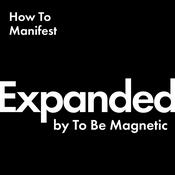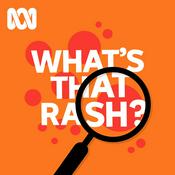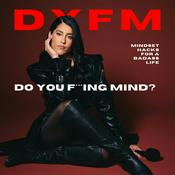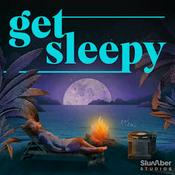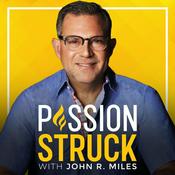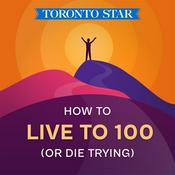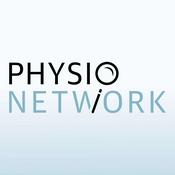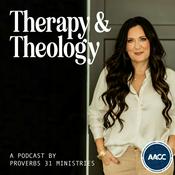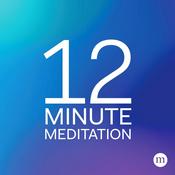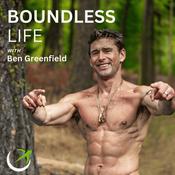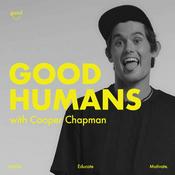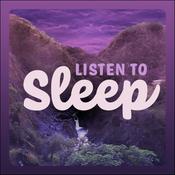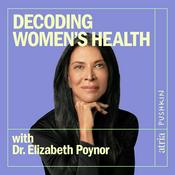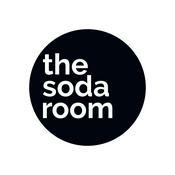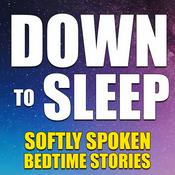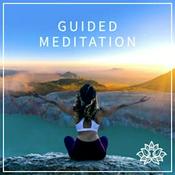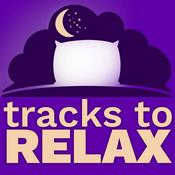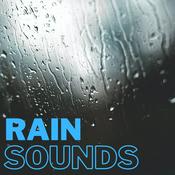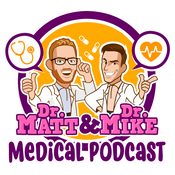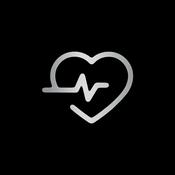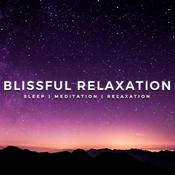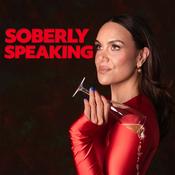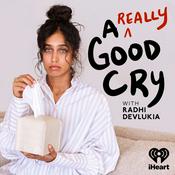THRIVING MINDS PODCAST
Professor Selena Bartlett, Neuroscientist, Brain Health is Everyone's Business

Latest episode
211 episodes
Episode #211. What running taught us about our brains, learn about exerkines with Associate Professor Tara Walker, Queensland Brain Institute, UQ and Co-host of Trail Tales.
16/02/2026 | 50 mins.This week on Thriving Minds, I’m joined by Associate Professor Tara Walker, Senior Research Associate at the Queensland Brain Institute (UQ) — and co-host of the trail running podcast Trail Tales with Tara and Bryce.
Tara and I are both neuroscientists, and we both love running. In this episode we explore the science and the joy of trail running — what it does for brain health, mental health, confidence, and connection. We talk about why running on trails feels so different to road running, how being in nature changes the experience, and why community is often the missing ingredient for people who think “I’m not a runner.”
We also dive into Tara’s research program investigating how lifestyle interventions like exercise and diet support brain health, including what we’re learning about hippocampal neurogenesis, exercise-related blood factors (exokines), and the emerging idea of exercise mimetics — ways to mimic some of the benefits of exercise for people who can’t run.
Along the way, Tara shares her personal trail-running journey — from her first 10–12km trail race to ultras and 100km events, and the mindset and training strategies that make endurance possible. We also discuss injuries, why trail running is booming, and how moving outdoors can help us feel more regulated, less stressed, and more connected.
If you’ve ever felt disconnected, stuck at a desk, or unsure how to start moving again, this is a practical and hopeful conversation — grounded in real neuroscience and real life.
Listen now — and if you’re in Brisbane, you might even want to join a community run (koalas included).
Support the show
Subscribe and support the podcast at
https://www.buzzsprout.com/367319/supporters/new
Learn more at www.profselenabartlett.comEpisode #210. Don’t Break Their Spirit. Learnt helplessness in the AI era. Professor Selena Bartlett
15/02/2026 | 10 mins.What happens when we mistake compliance for strength?
In this episode of Thriving Minds, Professor Selena Bartlett explores a powerful and confronting conversation with a man who was proud of the physical punishment he received as a child. He believed it made him disciplined. He believed it taught him consequences. He believed it made him better.
But beneath that story lies a deeper question: when does discipline build character, and when does it condition helplessness?
Drawing on neuroscience, behavioural science, and parallels from the multi-billion-dollar horse industry, Selena unpacks the psychology of learned helplessness — the state that occurs when repeated stress teaches a nervous system that effort does not change outcomes. A quiet being is not always a regulated being. Sometimes it is a shut-down one.
From parenting to leadership, from classrooms shaped by industrial efficiency to the rise of AI-driven optimisation, this episode challenges us to rethink control, compliance, and the architecture of agency.
True resilience is not built through fear. It is built through co-regulation, relationship, and adults who can pause rather than react.
If we want thriving minds, communities, and countries, we must ask ourselves:
Are we building agency — or perfecting compliance?
#ThrivingMinds
#LearnedHelplessness
#IntergenerationalTrauma
#AgencyMatters
#Neuroscience
#Parenting
#Leadership
#Resilience
#EmotionalRegulation
#CoRegulation
#HumanDevelopment
#BeyondCompliance
#DontBreakTheirSpirit
Support the show
Subscribe and support the podcast at
https://www.buzzsprout.com/367319/supporters/new
Learn more at www.profselenabartlett.comEpisode #209. "Authenticity" may become the word for 2026? Conversation with Ellie Murphy, Founder of Storitiv.
07/02/2026 | 47 mins.In this episode of Thriving Minds, Professor Selena Bartlett is joined by Ellie Murphy, founder of Storitiv, to explore why authenticity is becoming one of the most important human skills in an AI-mediated world.
As technology makes it easier than ever to generate polished language, profiles, and narratives, many people are sensing a growing gap between how they present themselves and what feels true underneath. This conversation examines why that gap matters, how humans are wired to detect authenticity, and why trust, consistency, and follow-through remain central to meaningful work and relationships.
Drawing on neuroscience, evolutionary insight, and lived experience, Selena and Ellie discuss authenticity not as branding or performance, but as alignment. They explore why oversharing isn’t the same as honesty, how misalignment shows up in the nervous system, and why trust is a key driver of productivity, speed, and psychological safety at work.
This episode is for anyone who feels that the story they’re telling no longer quite fits, and who is navigating leadership, identity, or connection in a world where words are easy to polish, but truth is still felt.
In this episode, we explore:
Why humans are built to detect authenticity
The neuroscience of trust, predictability, and alignment
How AI changes storytelling and perception
Why trust accelerates work and strengthens relationships
What it means to align truth and presentation in modern life
🎧 Thriving Minds explores brain health, human connection, and what it takes to thrive in a rapidly changing world.
Support the show
Subscribe and support the podcast at
https://www.buzzsprout.com/367319/supporters/new
Learn more at www.profselenabartlett.comEpisode #208. Welcome 2026. From Crisis to Care: Seeing humanity in mental health prevention and treatment, Professor Sharon Lawn, Executive Director Lived Experience Australia
22/01/2026 | 51 mins.The podcast episode featured a conversation with Professor Sharon Lawn about mental health systems, lived experience, and the importance of humanising care for individuals with mental health challenges.
We discuss the need for more person-centered, compassionate approaches in mental health services and the value of incorporating lived experience perspectives into research, policy, and practice. The conversation emphasized the significance of community support, everyday acts of kindness, and treating individuals with dignity beyond their diagnoses to transform mental health care systems.
Sharon covered several key topics:
Personal and Professional Background
Sharon's journey shaped by rural upbringing, family openness about mental health, and early career experiences working with veterans at a psychiatric hospital
Her observational approach to understanding mental health systems and power dynamics
Lived Experience in Mental Health
Definition and importance of lived experience work in valuing individuals' perspectives
How to intentionally use lived experience to create understanding and humanize mental health services
Challenges of incorporating lived experience safely and effectively in professional contexts
Dehumanisation and Systemic Issues
The contrast between seeing people as humans versus focusing solely on diagnoses and symptoms
Problems with impersonal language, labeling, and assumptions in mental health care
How systems deflect responsibility by labeling patients as "non-compliant" or "too complex"
Transforming Mental Health Services
The need for services to reach people in their own spaces rather than requiring them to seek help
Importance of person-centered, proactive approaches versus crisis-driven systems
Value of both formal and informal support systems, including community organizations
Humanisation and Connection
Practical ways to show compassion through everyday acts like using people's names, bringing flowers to hospital visits
The significance of small human connections and being seen
Building community through simple gestures of kindness and acknowledgment
Based on the meeting discussion, Sharon Lawn recommends several specific changes for mental health systems:
Shift from Crisis-Driven to Proactive Care
Services should reach out to people in their own spaces rather than requiring them to seek help
Move away from reactive, crisis-driven approaches to more accessible, preventive care
Humanise and Personalise Services
Use people's names and treat them with dignity and respect
See individuals beyond their labels and diagnoses, recognizing their strengths and skills
Stop using impersonal language and dehumanizing practices
Incorporate Lived Experience
Increase representation of people with lived experience in the workforce
Value and integrate lived experience perspectives into research, policy, and practice at every level
Create safe spaces for people to share their experiences without reducing them to mere "performances"
Respect Autonomy and Rights
Recognize individuals' autonomy and human rights in treatment settings
Stop deflecting responsibility by labeling patients as "non-compliant" or "too complex"
Integrate Formal and Informal Support
Recognize the value of both professional services and community-based organizations run by people with lived experience
Support the show
Subscribe and support the podcast at
https://www.buzzsprout.com/367319/supporters/new
Learn more at www.profselenabartlett.comEpisode #207. Thank you for listening and a Blueprint for Feeling Good to Finish out 2025.
09/12/2025 | 24 mins.Episode #207 marks a moment of deep gratitude and reflection. In this special episode, I look back on the journey that shaped Thriving Minds from the early days of questioning how the brain works, through decades of neuroscience, to the new era we are stepping into together.
This episode explores how early life experiences shape the nervous system, why connection is a biological regulator, and how compassion, presence and daily habits drive real neuroplastic change and where AI and digital technologies will transform how we detect anxiety, personalise support, and understand the social brain, while reminding us that healing will always come from human connection.
We close the episode with the key takeaways from 2025—lessons to carry forward:
Connection is medicine. Our brains regulate each other; synchrony is measurable and essential.
Healing is relational. Being seen, understood and met with compassion changes the brain.
Neuroplasticity is always possible. Small, consistent actions reshape circuits across the lifespan.
ACEs matter, but they are not destiny. With awareness and support, resilience can be built at any age.
Digital life must be redesigned for wellbeing. AI can enhance support—but human presence is irreplaceable.
We are each other’s environment. The communities we build shape the next three generations.
A hopeful, science-grounded blueprint for anyone seeking resilience, clarity and a future built on seeing and supporting one another as we close out 2025.
Support the show
Subscribe and support the podcast at
https://www.buzzsprout.com/367319/supporters/new
Learn more at www.profselenabartlett.com
More Health & Wellness podcasts
Trending Health & Wellness podcasts
About THRIVING MINDS PODCAST
Do you want to learn how to build resilience, boost your cognitive performance, and achieve mental agility? Then it's time to discover the exciting world of brain health and fitness with Thriving Minds. Hosted by renowned neuroscientist Professor Selena Bartlett, Thriving Minds is a podcast dedicated to exploring the latest advances in brain science education. With decades of experience studying addiction, stress, and mental health, Professor Bartlett is a true expert in her field. And she's on a mission to empower people to take control of their mental and physical well-being. So what makes Thriving Minds so unique? It's not just about theory – it's about practical tips and simple tools that you can use to improve your brain health and fitness right now. From understanding how stress wires the brain, the power of cold exposure, nutrition and exercise and connection. Thriving Minds is also a deep dive into cutting-edge brain science and digital technology. From neuroplasticity to brain imaging, Professor Bartlett and her team are at the forefront of this rapidly evolving field. They're exploring the latest research and innovations and sharing their insights with listeners around the world.And the best part? Let's make brain health everyone's business. They're inspiring people to take action and create a culture of mental fitness, where people prioritise their brain health as much as their physical health. Tune in to the podcast and discover the secrets of brain health and fitness. Whether you're looking to boost your cognitive performance, reduce stress, or improve your overall well-being, Selena and her team are here to help you thrive. The opinions expressed in the podcast are Selena Bartlett's personal opinion and her guests. They are for general informational purposes only and do not constitute the practice of medicine, nursing, psychology or other professional health care services, including the giving of medical advice, and no doctor/patient relationship is formed. The opinions in the podcast do not reflect the opinion of Queensland University of Technology.
Podcast websiteListen to THRIVING MINDS PODCAST, EXPANDED Podcast by To Be Magnetic™ and many other podcasts from around the world with the radio.net app

Get the free radio.net app
- Stations and podcasts to bookmark
- Stream via Wi-Fi or Bluetooth
- Supports Carplay & Android Auto
- Many other app features
Get the free radio.net app
- Stations and podcasts to bookmark
- Stream via Wi-Fi or Bluetooth
- Supports Carplay & Android Auto
- Many other app features


THRIVING MINDS PODCAST
Scan code,
download the app,
start listening.
download the app,
start listening.

